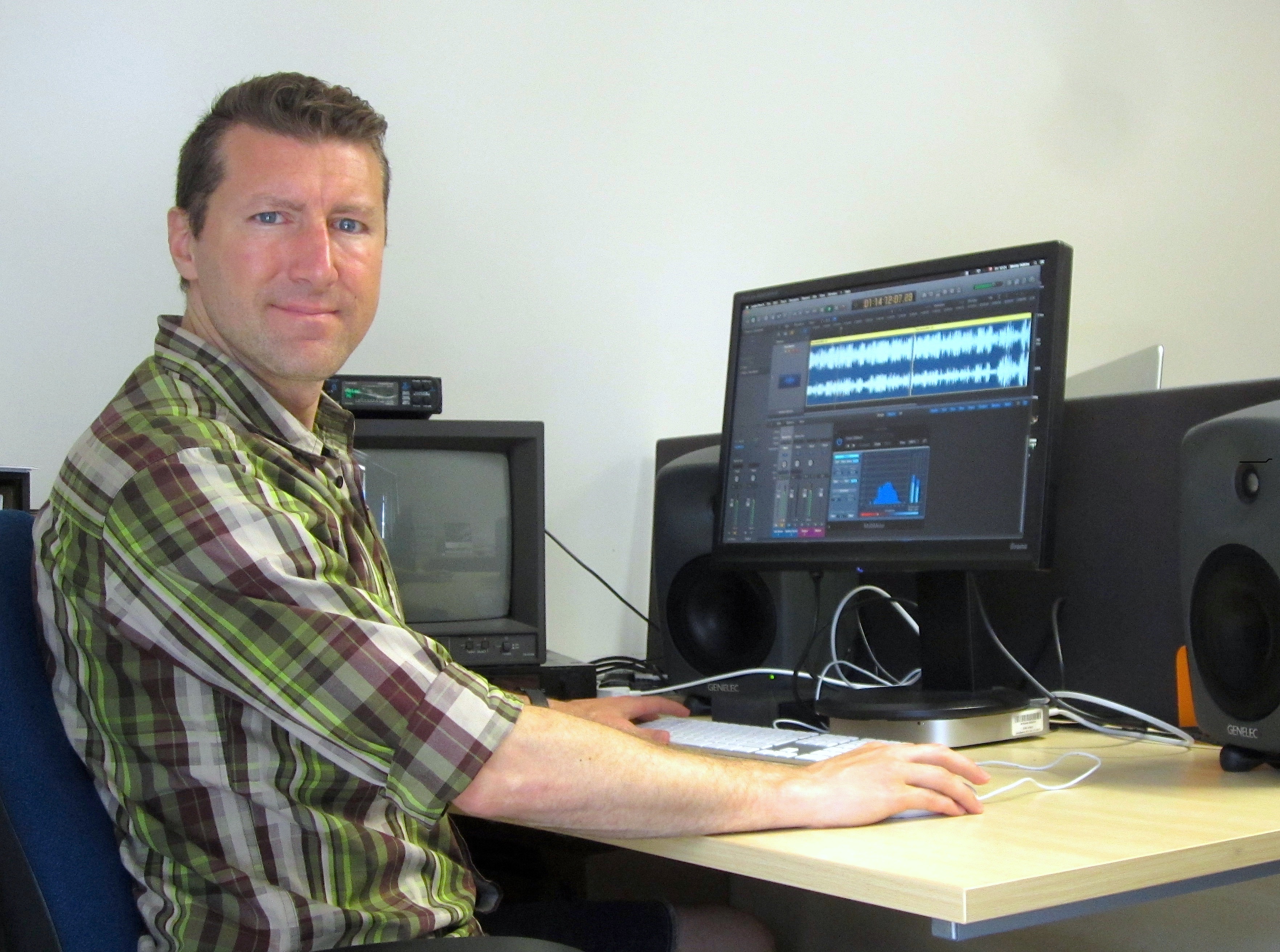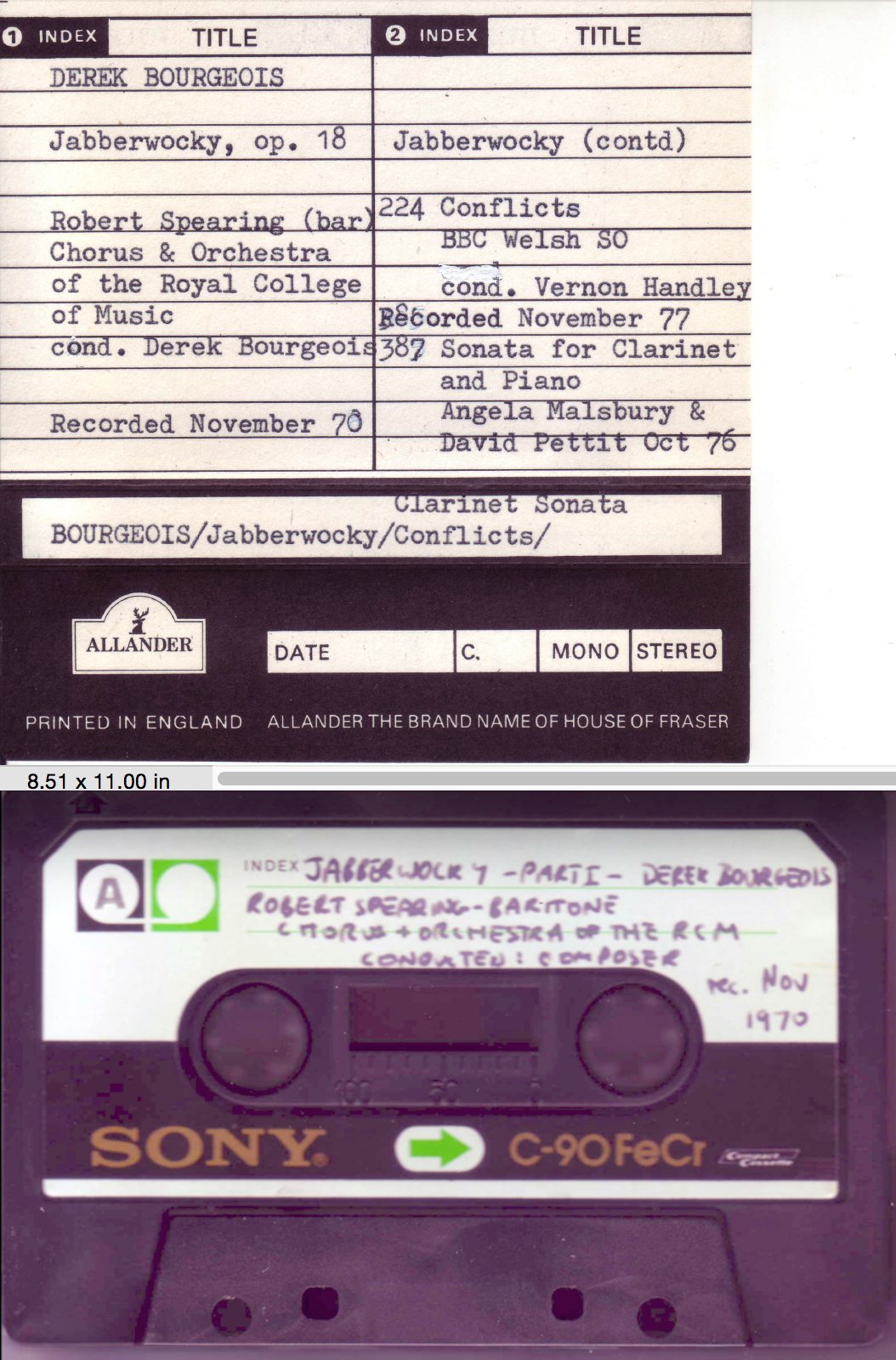
Last October, I moved to the United Kingdom in order to start my PhD research on music composition at the University of Huddersfield. In order to support myself as a student, I was fortunate to find a part time job at the University while I study and compose music. The work I’ve found was to provide help to the archivists at Heritage Quay at the University of Huddersfield. Heritage Quay acts as the guardian of the archives of other organizations, families and individuals dating back over 200 years. Recently, they received a large amount of documents from the British Library. I have experience with archiving and transferring various audio formats and was therefore assigned to digitise audio documents belonging to the British Music Collection.
The British Music Collection consists of over 60,000 scores and recordings from contemporary British composers. So far, I have dealt with over 130 audio cassettes, which mainly contains music radio programmes from the BBC. I’m privileged to have found this job because this work allows me to gain a real insight into the British culture (musically and socially). Being a composer myself, I have the delight to gain insights concerning the career of British composers and also to observe their musical progression historically. This work position offers me an interesting perspective upon the creative life of the British composers. It teaches me about their musical genealogy (which professor/composer taught them) and also about their artistic accomplishment. I had the pleasure of discovering numerous British composers whom works gave me a real enjoyment while digitizing the audio cassettes: Cyril Scott, Elizabeth Manconchy, Derek Bourgeois and Harrison Birtwistle, just to name a few.
Something that I have noticed while doing this work is how the BBC has provided a great platform for the diffusion of British music and culture to the world. They offer (even today) an earnest tribune for the emerging and established composers to perform their work on the airwaves. I’m taking great pleasure in expanding my musical knowledge with the introduction given by the BBC radio programme announcers before playing the related music. The information shared is relevant, insightful and very substantial. I’m educating myself musically while I do the digitisation: I’m a very fortunate person.
This job requires from me to wear several hats in order to perform all the tasks necessary to make available the audio content with the metadata to the music enthusiasts. I have to optimise the audio transfer, keeping the highest quality in order to conserve a digital version that is verbatim to the original. This will hopefully enable the future generations to assess these documents in the manner the creators have intended to keep and preserve their work. Another of my assignment with the newly digitized audio file is to create separate tracks according to the description on the cassette’s label and sleeve. Thus, with the collected information, I need to correlate and confirm the metadata with the separated audio files. My goal is to gather as much musical detail as possible in order to enhance and validate the documents assessed. Thankfully, the Internet is a great tool that helps me authenticate the evaluated information before making it available and accessible to the general public. To keep a high standard of accuracy, this digitization work necessitate from me to be meticulous sonically and computationally. It also requires my full attention, in order to translate the documents from one medium to another.
My methodology is to approach the audio cassettes like a valuable object, which people will treasure and prize in the future. Interestingly, the job I’m accomplishing for the British Music Collection makes me think that it can be related to monks who would engage in the culture of copying manuscripts by hand; thus I feel I could be considered like a monk of the 21st century.
Sebastien Lavoie
Tags

